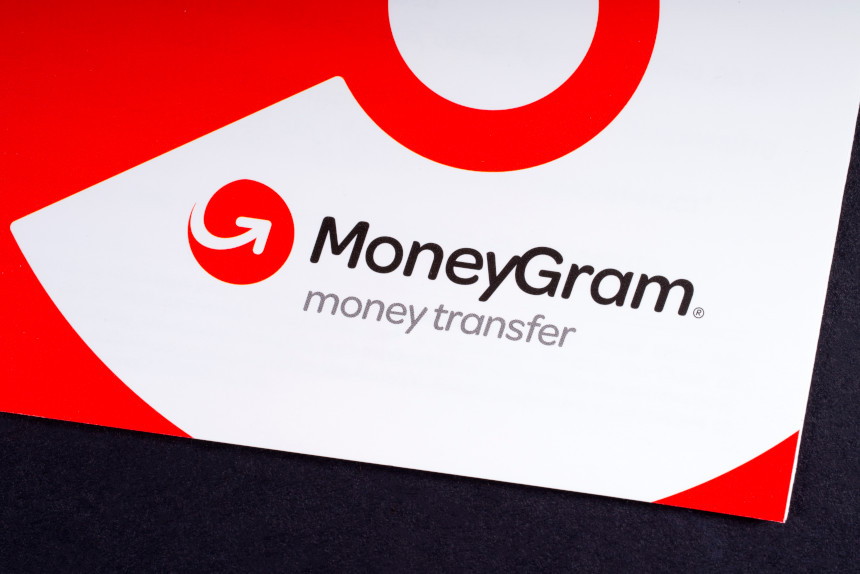Steve Weisman is a lawyer, college professor, author, and one of the country’s leading experts in cybersecurity, identity theft, and scams. See Steve’s other Con Watch articles.
A common theme in many scams, including phony lottery scams and the infamous grandparent scam, is that the criminals will require the victim to wire money. Once money has been wired it is impossible to trace or stop the payment.
In response to this problem, the Federal Trade Commission filed charges against Western Union in 2017 and MoneyGram in 2009. According to the FTC, it wasn’t that these companies were active co-conspirators, but instead they turned blind eye to the fact that their services were being used by criminals. Both companies settled the FTC’s claims and agreed to make substantial changes in how they did business in order to reduce fraud.
While Western Union has been adhering to the terms of its settlement, the FTC determined that MoneyGram was not implementing the fraud prevention standards agreed upon, and consequently the FTC brought new charges against MoneyGram, which were settled in 2018. Among the terms of the new settlement was a payment by MoneyGram of $125 million to the FTC to be returned to people who were victimized by scammers through MoneyGram between 2013 and 2017. Now, three years later, the FTC is sending payments.
The FTC has hired Gilardi & Company LLC as the settlement administrator in charge of sending claim forms and payments. The pre-filled claim forms indicate the amount of money you lost according to MoneyGram’s records. If you agree with the amount, complete the rest of the form and mail it back before the deadline or submit your claim online at moneygramremission.com. The form does ask for your Social Security number, which you will need to provide; before sending a refund, the federal government uses it verify that you don’t owe any money to the federal government, such as overdue income taxes. If you do not agree with the amount of loss indicated on the form, you will need to provide documentation to prove your actual loss.
Since the legitimate form asks for your Social Security number, many people are rightfully skeptical as to whether they are getting the real form or one sent by a scammer. The real form has a return address of
United States v. MoneyGram International, Inc.
P.O. Box 43549
Providence, Rhode Island 02940-3549
It also lists the phone number for Gilardi & Co.— 844-269-2630 — and carries the official seal of the Department of Justice and the United States Postal Inspection Service. No fee is required to file your claim. Any communication that asks for a payment in order to file your claim is a scam.
If you believe you are a victim of the MoneyGram scam but didn’t receive a prefilled claim form, you can file a claim on your own after June 1, 2021. In order to qualify for a refund you must have sent money to a scammer through MoneyGram between January 1, 2013, and December 31, 2017. According to the FTC it will take at least a year to review and verify claims before further refunds will be sent.
Of course, the best thing to do is to avoid scams like this in the first place. Whenever anyone requests that payment be made by way of a wire transfer, you should immediately be skeptical because of the impossibility of getting your money back if the deal is a scam or if anything goes wrong.
But it isn’t just wired funds that crooks prefer. They also are very fond of gift cards.
Con artists are big fans of gift cards because they are easy to purchase, easy to send, and impossible to trace. It is not even necessary for them to be in possession of the actual gift card to use it. Sending the gift card numbers or a picture of the card is sufficient. Last year the (FTC) released a new report indicating that since 2018, consumers have been bilked out of almost $245 million through gift card scams. Gift cards are commonly used by criminals posing as a government agent, tech support, or even an online romantic interest.
Fortunately, gift card scams are easy to avoid. Anytime anyone approaches you with a business transaction in which you are asked to pay through gift cards, you can be confident that it is a scam. The IRS has even had to post on its website that it does not accept gift cards as payment.
The safest way to make a payment that you believe to be legitimate is your credit card, where federal law protects you from liability.
Featured image: chrisdorney / Shutterstock
Become a Saturday Evening Post member and enjoy unlimited access. Subscribe now




Comments
I received a claim form from the money gram lawsuit and I filled it in and sent it back in 2016 was when I was Fraud for $3500 I filled out the claim form I never received anything back I even called them and they never answered
I filled form with gilardi &co llc no refund no answer I think one scammer took money from you now gilardi as second scammer shared the money with first scammer and we are left to hear from them
I lived in Alabama at the time I was scammed in January of 2015, they tracked me down in Colorado Springs in February of 2020 what was the point in tracking me down if you were not giving me back the money, that was two years ago, I’m beginning to think you had no intention on giving people back what they lost, your no better than the scammers.
I was sent a petition form two years ago in 2020, about the $400.00 I was scammed out of in January of 2015, I filled out the form, and haven’t received a refund yet. How do I get my money ? I don’t want to call anymore numbers with recorded messages, I just want the $400.00 money gram promised to get back for me.
Please notice the government keeps putting off the payments. Now it’s you may get a refund. Class action is always taking money for attorneys. I received my letter from the DOJ , USPS months ago but no money. My records along with Moneygram records show they owe me $20,000 for 29 transfers but at the end I may owe Moneygram. It’s becoming a joke. Just try calling them and see what you get but another recording?
Over 2 yrs and no one will talk to me. I have case number and gilardi +co llc never call me back. Numerous messages and still the run around. Why is the federal trade commission not demanding they contact us. I want answers let me know if I need to get an attorney